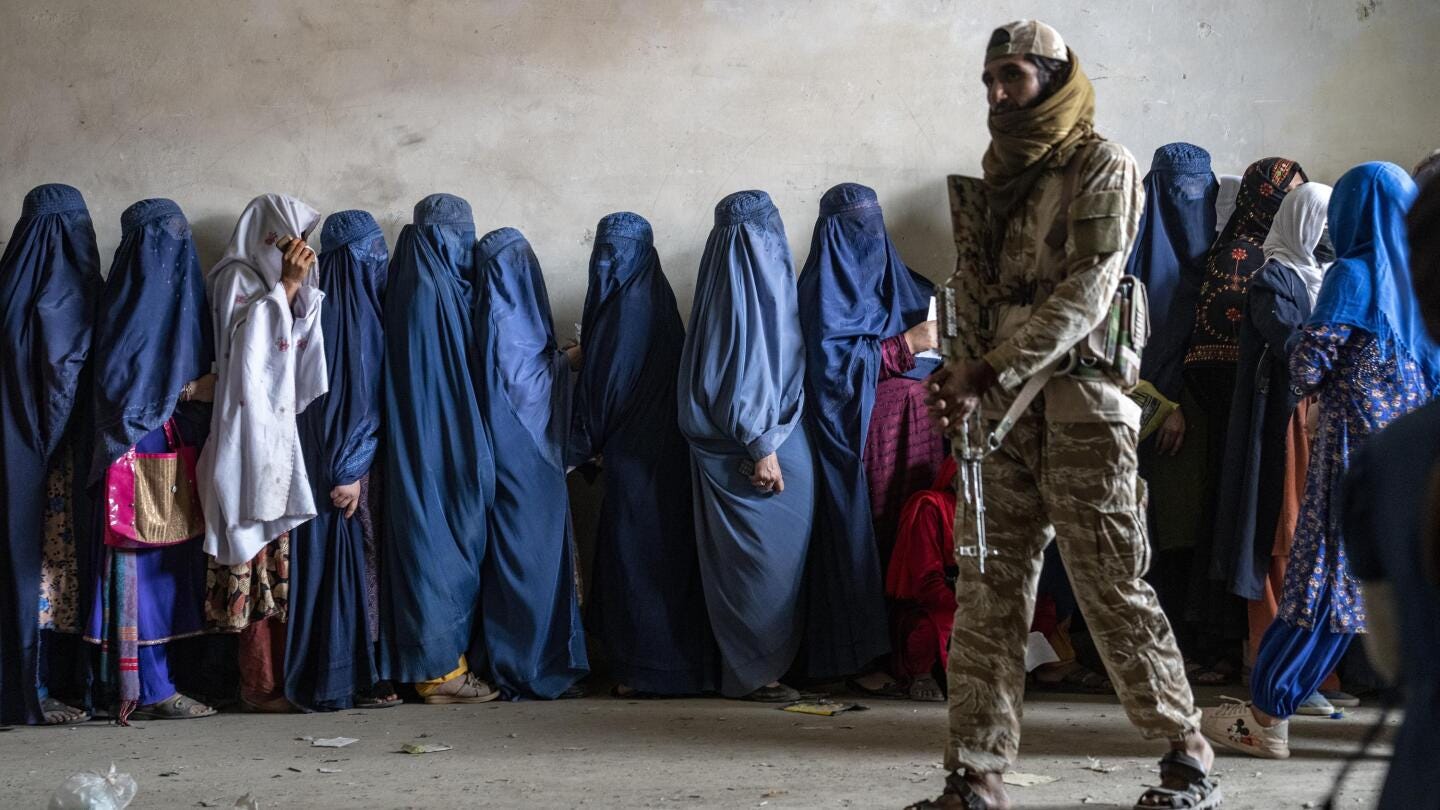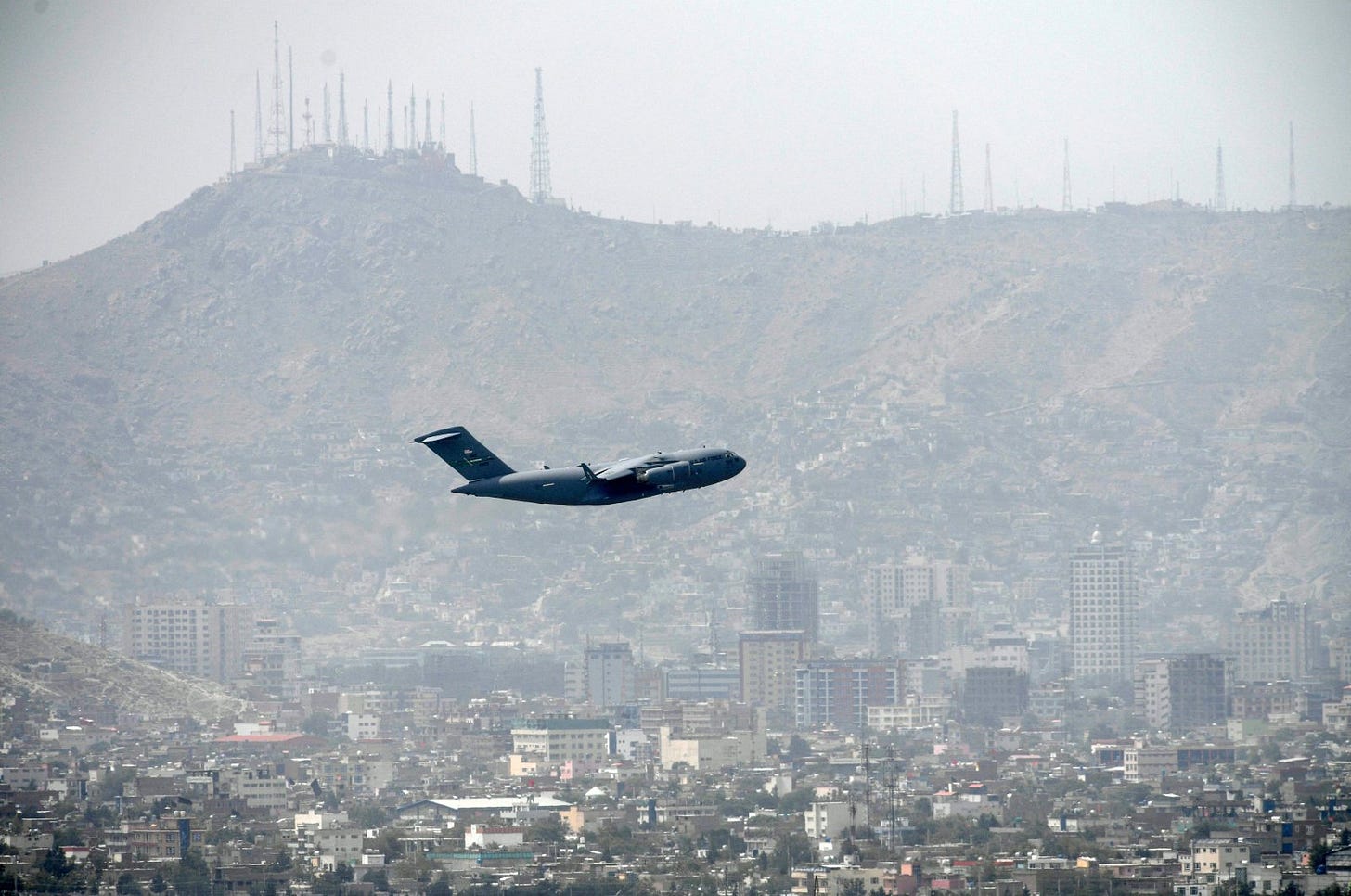Between Islam and Poverty: Afghanistan Teeters Under the Taliban
Pakistan reaps the consequences of its previous support
By: Salman Rafi Sheikh
It is not a story of broken promises. Afghanistan under the Taliban is a story of false promises forcefully projected onto the people to solidify its rule. Since taking over violently in August 2021, an outcome of the faulty pact the US signed with the Taliban in 2020, Afghanistan’s political, social, economic, and security situation has not seen the dramatic turnaround that the Taliban had promised.
Earlier, the fundamentalist regime blamed the US occupation and the US-backed “puppet” Ghani regime for all its troubles. Two years later, they have only themselves to blame, although the group has yet to accept the reality and the magnitude of its failure. The US, which has been criticized for refusing to repatriate the US$7 billion in foreign assets held by Afghanistan’s central bank on US soil, has provided about US$2 billion in humanitarian aid since the last airplane took off in August 2021. The US remains at the top of the donors’ list with more than US$336 million in contributions in 2023.
The Taliban’s violent takeover and the related failure to develop an inclusive model of politics has led donors to suspend their aid. This has led directly to an increase in poverty levels and a severe food crisis. Today, more than 90 percent of Afghans are facing severe shortages of food. In 2012, a survey by the charity ActionAid found that a full 90 percent of Afghan women feared the departure of the international community, believing that their lives would significantly deteriorate. Their most pessimistic dreams have come true.
Adding to the Taliban’s trouble is the 1.7 million Afghans living “illegally” in Pakistan who are being repatriated. Of the 1.7 million, more than half a million have already been sent back. Reports indicate that Pakistan forced them to leave most of their possessions behind, not allowing them to take, per family, more than US$150. As reports indicate further, these refugees are living in camps without sufficient supplies of food and shelter. Pakistan’s caretaker Prime Minister Anwar-Ul-Haq Kakar recently blamed the return of the Afghan Taliban to power for the nearly 60 percent increase in terrorism in Pakistan over the past two years.
The Taliban, on the other hand, claim that terrorism – including attacks by the Afghanistan-based Taliban ally Tehrik-i-Taliban Pakistan (TTP) – is Pakistan’s internal problem. Pakistan claims that the Afghan Taliban are required, according to the terms agreed in the Doha Pact that ratified their return to power, to ensure that the territory of Afghanistan is not used for carrying out terror attacks against any country and that the Taliban must eliminate terror groups.
Thus far, however, the Afghan Taliban have only selectively targeted the Islamic State-Khorasan (IS-K) also without taking any meaningful action against the Pakistani Taliban, leading Pakistan to punish Kabul by forcing out the Afghans who had fled their country and are living in Pakistan illegally.
Whereas the spat between the Afghan Taliban and Islamabad was unexpected because of the history of their ties as collaborators, the regime has not been able to win recognition from any other state in the world. Last year, China became the first country to appoint a formal ambassador to Kabul, but Beijing has yet to offer recognition. One key reason for the absence of recognition is that the Taliban’s regime is internally illegitimate. The group virtually overthrew the Ghani regime in August 2021 as the Americans hurriedly departed and has, ever since, not only not held elections to legitimize its rule but has suppressed active politics.
In August 2023, two years after taking power, the group banned political parties because they “violated” Sharia regulations. Abdul Hakim Sharaee, the Taliban minister of justice, announced the ban, saying “There is no Sharia basis for political parties to operate in the country. They do not serve the national interest, nor does the nation appreciate them.” The decision affected more than 70 political parties that were registered until the Taliban’s takeover. Politically, the decision also means de facto one-party rule, which also means there is no political force that can hold the Taliban accountable for either its failure to provide for food, stabilize the economy, or control terrorism.
This one-party rule – which is dominated by the Haqqani network known for its hardline views and support for such jihadi groups as the IS-K – is affecting Afghanistan in other ways as well, including the ban on women’s education and rights. While civil society has responded by establishing a network of “secret schools,” their future remains uncertain as well as dangerous. They are susceptible to suppression as well as attacks by groups like the IS-K.
These bans are an outcome of the interpretation of Islam that has its roots in the Deobandi school of thought, known for its conservative disposition vis-à-vis most modern phenomena. Within the Deobandi school, emphasis is placed on returning to pure and pious Islam. While one school emphasizes the way of preaching (Tabligh) for practicing pure and pious Islam, the Taliban combine this emphasis with violence and active suppression. Today’s Afghanistan is a manifestation of this method.
More importantly, even though Saudi Arabia – which has historically supported the Taliban and is itself currently undergoing modernization that includes giving women a lot of rights that were previously not available – has taken no steps to push the Taliban towards allowing women education and employment.
As a result, the Taliban regime is actively pushing female doctors out of the picture. Women in Afghanistan are facing life-threatening situations. In 2020, the World Health Organization reported that 24 women die in Afghanistan every day due to pregnancy and/or childbirth-related issues. With the growing shortage of female doctors combined with the conservative reluctance to get women examined by a male doctor, the death rate is expected to increase sharply.
Who will hold the Taliban responsible for these deaths? Their interpretation of Islam comes into play to make sense of such situations, whereby the ‘Will of Allah’ is frequently projected to explain death and/or any other crisis.
With no regional and extra-regional powers seeking to push the Taliban to change course and develop a regime that would develop a framework of more inclusive policies, Kabul has consolidated itself into a force of regression. Ironically, this is exactly what many of us had expected.
Those in Islamabad, ironically, in 2021 had a different picture. The fact that Pakistan saw more suicide attacks in 2023 than any other time since 2014 came as a rude awakening for them. Pakistan is now using both carrots and sticks to attempt to control this continuously deteriorating situation, but whether Islamabad really can convince Kabul remains to be seen.
Dr. Salman Rafi Sheikh is an Assistant Professor of Politics at the Lahore University of Management Sciences (LUMS). He holds a Ph.D. in Politics and International Studies from SOAS, University of London. He is a longtime regular contributor to Asia Sentinel.



The opening paragraph most aptly describes the Taliban and Taliban's broken and murderous rule of Afghanistan. It is nothing more than the great traitor to the people of Afghanistan. Its satanic rule is made of its Islamo-fascist ideology and teachings, equal to or worse than Stalinism and/or Maoism. There was a time when theocratic Iran, run by its mad and corrupt and equally murderous and bloodyminded mullahs, would call the United States (and generally most of the West) The Great Satan. But as the author and essayist Salman Rushdie so profoundly penned his novel, Satanic Verses, one can't help but read between the lines of the books contents to delineate just how accurate he was of Islamic theocracy who turned Islamic teachings, proffered by their 'allah' -- as if! -- into their thirst for plunder, rape and wanton killings of their own people or those who dare defy not just them but who profess some form of 'liberalism' and defy Islamic fascism. Christopher Hitchens's book, God is not Great, is a wonderful, germane, accurate riposte to not just those who peddle Islamic fascism through the barrel of the gun, or indeed even against Hinduism and Christianity -- any organized religion, to be sure -- as barbaric as they tramples over the rights of the people and infuse them with false promises and false ideologies. You only have to look at Pakistan having become a basket-case of Islamo-fascism in political, economic and social terms. The next two, I hazard to guess, will be Indonesia and Malaysia.
I found the paragraph of the Deobandi school of thought fascinating as the source of the Taliban's ideological fascism. I'd be circumspect, however, on Saudi Arabia's claim toward "modernizing" the so-called kingdom. My circumspection is based on the notoriety of the so-called prince, Salman, who is capable of wearing two heads on his body and speaking with two tongues. The example of extending women's rights in Saudi Arabia will not go as far as its economic development. But when you are a despot like Salman, sitting on the throne of one of the world's biggest oil reserves. Russia has the world's biggest reserves of oil and gas, and other fundamental resources that the world needs for economic growth and development. Whichexplains the immoral and racist Narendra Modi's spineless absent-condemnation of Vladimir Putin's neo-colonialist/false nationalistic invasion of Ukraine. And not even the U.S. would blink or protest if Saudi women's rights remain more or less circumscribed as it has barked about the rights of women in Iran. That's how two-faced the United States is, and in particular its policymakers, including secretary of state Blinken, who has yet to blink over Israel's ethnogenocide of Palestinian people (though I could not care less if Hamas and Hizbollah are deservedly massacred by Israel).
The madness of religion never ceases to amaze and appal...